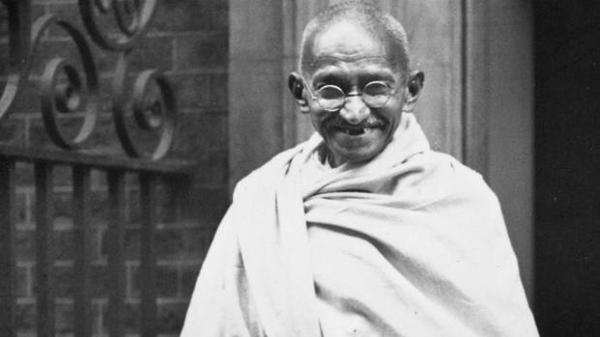Rajkot (Guj): The journey from Mohandas to Mahatma started within the confines of a modest home in this Gujarat town, where a child grew from a conflicted youth to a man who would shape India’s destiny and inspire millions across the globe.
If they could speak, the walls of ‘Kaba Gandhi no Delo’, the house where Gandhi spent most of his formative years, would tell the tale of the making of the Mahatma.
But they don’t, and now a museum at the house named after his father Karamchand Gandhi, fondly known as Kaba Gandhi, is where visitors can begin to unravel Mohandas Karamchand Gandhi’s story – and life.
Many years before he became Mahatma Gandhi, a young Mohandas did things considered outrageous for an orthodox Hindu family of the early 19th century.
The house in a narrow bylane of old Rajkot is mute witness to events that laid the foundation of the beliefs that shaped the character of the Mahatma, a man who committed mistakes but overcame them and later earned the title of Father of the Nation.
Gandhi came to Rajkot when he was seven, stayed till he was 22, spending most his youth here, travelling to England and South Africa, but returning to base every now and then.
“Porbandar is the birthplace of Mahatma Gandhi and Ahmedabad his karmabhoomi (where he worked), but Rajkot is definitely his sanskarbhoomi (where he got values). Here he started his journey from Mohan to Mahatma,” said Heliben Trivedi, managing trustee of the ‘Kaba Gandhi no Delo’.
His belief that everything can be achieved by non-violence and truth gained roots in Rajkot, she said as India and the world celebrate the 150th birth anniversary of Mahatma Gandhi.
“He made mistakes and felt guilty about it and had the courage to accept them in front of his father. You name it and he had done that. Like stealing gold of the family to pay debts, eating meat without informing his vegetarian family, stealing copper coins of servants to smoke and even visiting brothels,” Trivedi said.
Gandhi also tried to enforce his will on wife Kasturba and at one point even made a feeble attempt to commit suicide for feeling he did not have enough freedom to do things as he wished.
Jolly Pravasi, a Gandhian, can recount the minutest detail of Gandhi’s life in Rajkot.
“He feared the dark and could not sleep without keeping the lights on in his younger days. His maid taught him to chant the name of Lord Rama to keep off his fear and he used to do that. In the latter part of his life, he was not afraid of taking on the might of the British Empire,” said Pravasi.
He was born in Porbandar on October 2, 1869, but did not have any distinct memory of the city as his family shifted to Rajkot when he was just seven, Gandhi writes in his autobiography “My Experiments with Truth”.
His schooling and higher education were mostly in Rajkot, where his father was a divan (minister) in the princely state.
His father’s reaction to his confession that he had stolen gold made him understand the profound impact of non-violence, Jolly said.
Gandhi admitted he had stolen a part of his brother’s gold bracelet to repay a Rs 25 debt in a handwritten note to his father. But his father just tore up the note with tears rolling down his cheeks.
Gandhi says in his autobiography that he expected a severe scolding and even thrashing for his act, but his father’s action made him learn the impact of winning hearts by non-violence.
His love for the truth made him forgo meat as he could not tell lies to his mother any more. He became a proponent of equal rights for women in Hindu society after realising that what he did with his wife was not proper.
“We can definitely say that his building of his character from Mohan to Mahatma started from Rajkot,” Trivedi said.
The foundation of Gandhi’s strong character was laid in his Rajkot home, Jolly added.
The “stages” where Mahatma Gandhi’s life was enacted, be it his birthplace Kirti Mandir in Porbandar or his Rajkot home ‘Kaba Gandhi no delo’ or the Alfred high school where he studied, have been preserved to inspire future generations, Jolly said.
One century and 50 years later, Gandhi still lives.
PTI
